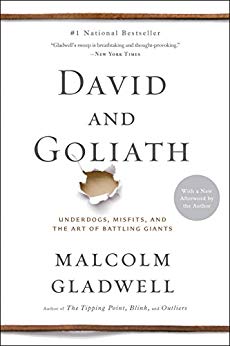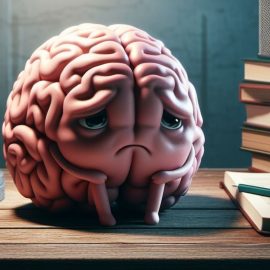

This article is an excerpt from the Shortform summary of "David and Goliath" by Malcolm Gladwell. Shortform has the world's best summaries of books you should be reading.
Like this article? Sign up for a free trial here .
A surprisingly high percentage (one study says ⅓) of successful entrepreneurs and business leaders are dyslexic. Are they successful in their careers despite their dyslexia or, perhaps, because of it? Is it possible that there are some dyslexia benefits?
We’ll look at unexpected dyslexia benefits and examples of real-life entrepreneurs who have used their dyslexia to their advantage.
Dyslexia Benefits: For Some, a Desirable Difficulty
People with dyslexia often compensate by developing other skills, including memory, observation, and summarizing skills. These are a few surprising dyslexia benefits.
For instance, David Boies is one of the most successful trial lawyers in the world. But he didn’t learn to read until he was in 3rd grade, and even today, he reads slowly and poorly. Boies credits his dyslexia (undiagnosed when he was young) for his amazing abilities in other areas:
Dyslexia Benefit #1: Memorizing
- In childhood: Because Boies couldn’t follow along when his mother read to him, he memorized what he heard.
- In adulthood: In law school, while his classmates were busy taking notes and, consequently, missing parts of the lecture, Boies was able to memorize the content of the lecture.
Dyslexia Benefit #2: Listening and Observation
- In childhood: Because he couldn’t read (and multisensory learning was not as popular as it is today), listening and observing others was the only way Boies could learn. He got good at these skills.
- In adulthood: As a trial lawyer, Boies catches hesitations during testimony, red-flag word choices, and nuance in tone and pace of voice that other lawyers miss. He takes advantage of these observations in his sometimes-brutal cross-examinations of witnesses.
Dyslexia Benefit #3: Ability to Simplify Issues to Their Key Points
- In childhood: Without the ability to refer back to a text, Boies became skilled at simplifying complex issues to their basic points, making them easier to remember.
- In adulthood: Many trial lawyers are academics and have trouble conveying their arguments to a jury because they get bogged down in the details. Boies presents the case to the jury in an accessible way and, therefore, has the advantage in court.
Other people with dyslexia compensate in different ways. Movie producer Brian Grazer became skilled at the art of persuasion. This is another dyslexia benefit. Grazer’s dyslexia caused him to struggle in all his high school and college classes (which are usually text-based). After he received a grade, he’d go to the teacher and convince him or her to raise his grade by one letter. He says this worked 90% of the time. Grazer learned to negotiate out of necessity. This was good training for his eventual career as a movie producer.
Dyslexia Benefit #4: Disagreeableness
A surprising trait gained by successful entrepreneurs with dyslexia is disagreeableness. How does disagreeableness arise? If you grow up a misfit (due to your struggle with reading), you are practiced in not caring what others think of you. This carries through as an adult.
Why is disagreeableness an asset? If you’re worried about what people think of you, you’re not going to act on your unconventional—possibly revolutionary—ideas.
Example: The Benefits of Disagreeableness
Gary Cohn, the president of Goldman Sachs, was held back a year in elementary school. He has dyslexia, and it still takes him about 6 hours to read 22 pages. He got his job on Wall Street when he hopped into a cab with a guy who looked like he might have some power in one of the big brokerage firms. Cohn lied to him: He said he knew all about buying and selling options. (Cohn had barely made it through high school and, at the time, had a job selling aluminum siding. He had nothing to lose.) The following week, the man hired Cohn (after Cohn gave himself a crash course in options trading, no small task, even for someone without a learning disability.) This was a “disagreeable” act, an act in which Cohn didn’t care about the social consequences of pretending to be someone he wasn’t.
A note on dyslexia and success: Many people with dyslexia never learn to effectively compensate for their inabilities. For example, a high proportion of prison inmates have dyslexia. Only when we can learn from our difficulties and overcome the failures they produce does dyslexia benefit us.
———End of Preview———

Like what you just read? Read the rest of the world's best summary of "David and Goliath" at Shortform . Learn the book's critical concepts in 20 minutes or less .
Here's what you'll find in our full David and Goliath summary :
- Why being the underdog can actually be an advantage
- Why you shouldn't be afraid of powerful giants
- Strategies to get an edge when you're overpowered






